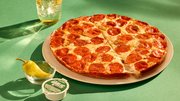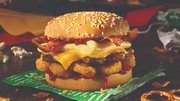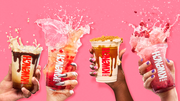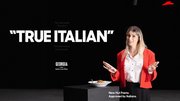Article
Is healthy really on the QSR kids menu?
NRA forecast predicts "better for you" will be No. 1, but the offerings have far to go.

January 19, 2009
Quick-service operators have predicted the No. 1 food trend in 2009 will be healthy options in kids' meals, according to a National Restaurant Association survey.
With growing concern over the increase in childhood obesity, the market certainly seems ready for more better-for-you-options for children. Recent studies by various consumer and health agencies have found that QSRs have few kids' meals that meet federal dietary guidelines. And health advocates and consumer groups, such as The Council of Better Business Bureaus (CBBB), are calling for a change.
The council launched in 2006 the self-regulatory Children's Food and Beverage Initiative, asking brands to limit national advertising to children under 12 and to promote better-for-you choices.So, where are the healthy options for kids and are more planned for the coming year?
Sheila Weiss, a registered dietitian and director of nutrition policy for the NRA, said many QSRs are offering better-for-you side and drink options for kids' meals, such as apple slices or low-fat milk, and the number of those offerings is likely to grow.
"We're seeing more interest in providing those options to children," Weiss said.
Healthy kids' meal options vary by brand, and for many, the offerings show up often as side items, typically in the form of fruit. Options include:
- Sliced apples — McDonald's, Burger King, Subway
- Applesauce — Arby's
- Fresh banana — Sonic
- Fruit cup — Chick-fil-A
- Mandarin oranges — Wendy's
Kathy Pyle, senior director, marketing for McDonald's USA, said that the apple dippers and low-fat milk in mini-jugs have been a success for the brand. For example, apple dippers were introduced in 2004, and McDonald's now sells more than 80 million in a year.
That's more than 219,000 apple dippers a day, or nearly 16 orders per store, based on 14,000 units in the United States.
McDonald's signed the CBBB's advertising pledge in 2006 to limit its national advertising to children under age 12 to products that represent healthy food choices.
McDonald's kids' meals that fit its pledge to the Children's Food and Beverage Initiative include the brand's four-piece Chicken McNuggets and Hamburger Happy Meals with low-fat white milk and apple dippers with low-fat caramel dip, as well as a Snack Wrap plus Fruit and Yogurt Parfait and bottled water. The meals have between 395 and 500 calories and 15 to 17 grams of fat.
While parents are typically the ones looking for healthy options for their children, McDonald's made sure its packaging had kid-friendly appeal. For example, when the company introduced low-fat milk as a Happy Meal choice, the brand put the milk in jugs instead of cartons "to make it more fun for kids" and easier to drink, Pyle said.
"As a result of that, we saw milk sales double," she said.
Healthy entrée choices
Subway and Arby's are two brands that offer non-fried protein options. Arby's offers crustless, mini-Market Fresh sandwiches or a Junior Roast Beef sandwich in its kids' meals.
According to Arby's nutritional information, the sandwiches have between 235 and 272 calories and 5 to 10 grams of fat each. No milk is on the menu, and the only juice offering is orange juice.
Subway's three Fresh Fit for Kids' meals, featuring low-fat mini-subs, range from 320 to 520 calories and 3 to 7 grams of fat for the whole meal. A package of apple slices and low-fat milk are the recommended side items.
Subway has offered the Fresh Fit meals since March 2007, adding the better-for-you kids' offerings as a complement to the regular menu. The main difference in the Fresh Fit meals is the recommendation of fruit and milk instead of the traditional bag of chips and soft drink.
"We've always offered better-for-you for the adults," said Lanette Kovachi, Subway's dietitian, "Having a (healthy) kids' meal is just a natural extension of our brand and what we believe in."
Burger King last summer added a macaroni and cheese kids' meal that includes Apple Fries (apples sliced to resemble french fries), low-fat caramel dip and low-fat milk. The meal has 340 calories and 7.5 grams of fat.
Burger King also has developed its BK Positive Steps program to focus on childhood nutrition. In November, the company signed the CBBB's children's advertising initiative, committing to limit its advertising to children under age 12 to meals that meet federal dietary guidelines.
Fast facts on childhood nutrition |
|
Only Burger King's macaroni and cheese kids' meal fits those parameters, but the brand announced in November it will roll out more kids' meals that meet the initiative this summer. The company would not comment for this story.
McDonald's Pyle said the company does not have any immediate plans to add more better-for-you kids' choices to the menu, but that the brand continues to look for ways to meet customer demand.
"Our menu does evolve over time to really meet and address the needs of customers' lifestyles," Pyle said.
Meeting demand
The NRA's Weiss said consumer demand, not negative publicity about what kids' meals lack, is driving more kids' meal choices.
"Those options have been there for a while and they will continue to be offered as people demand and people buy them," she said. "People as a whole are more interested in leading healthier lifestyles and choosing lower-fat, lower-calorie options when they dine out — and helping children make those choices too."
| ||||||||||||||||||
And demand will continue to drive the menu.
For example, regional chain Carl's Jr. offers salads, but they don't sell well compared to the brand's premium burgers, CKE CEO Andrew Puzder said.
"We do have healthy things," Puzder said in an August interview. "You can get them. It's just despite what all the media seems to think, nobody wants them. (Customers) come in — even when I put (salads or chicken) on TV — nobody buys them."
 ChatGPT
ChatGPT Grok
Grok Perplexity
Perplexity Claude
Claude









